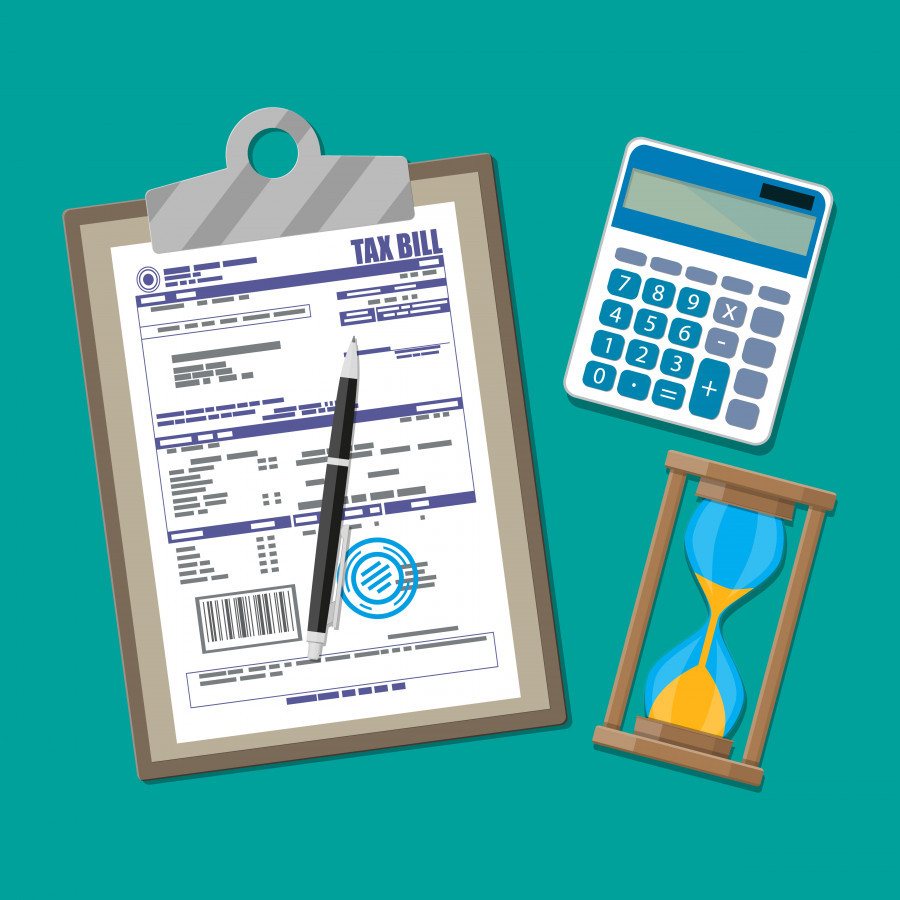Money
Government is way behind tax revenue target as fiscal year ends on July 15
Annual target is Rs450 billion but the Inland Revenue Department has collected just Rs373.26 billion until July 3.
Prithvi Man Shrestha
With just 10 days remaining for the fiscal year 2020-21 to end, the government is way behind its monthly and annual tax revenue targets.
Although tax collection was briefly disrupted after an order by the Supreme Court in May, it later vacated the order allowing the government to collect taxes even during the lockdown.
The annual tax revenue target for the fiscal year is Rs450 billion.
As of July 3, the Inland Revenue Department, the tax authority, has collected Rs373.26 billion, which means that it has to collect additional Rs77 billion in the remaining 12 days of the Nepali month of Asar to meet the target.
According to the Department, it collected just Rs17.70 billion in taxes in Jestha [mid-May to mid-June], the 11th month of the fiscal year, against the monthly target of Rs33.07 billion. And in the 19 days of Asar, the last month of the fiscal year which ends on July 15, just Rs12 billion has been collected until July 3 against the target of Rs71.86 billion.
“It is challenging to meet the revenue target for the current fiscal year,” said Arjun Dhakal, information officer at the department. “The next five days will be crucial for meeting the revenue target.
Soon after the Supreme Court on June 15 vacated its earlier order to stay the collection of value added tax during the period of prohibitory orders, the department issued a notice asking the taxpayers to submit their tax details and pay the taxes by July 9.
As per the notice issued by the department on June 16, taxpayers have been asked to pay the VAT, tax deducted at source (TDS), excise duties, education service tax, telephone ownership and telecommunication service fees of Chiatra (mid-March to mid-April) and Baishakh (mid-April to mid-May) and submit their details by July 9.
Earlier, on May 18, the apex court had issued an interim order not to collect VAT or impose fines on taxpayers during the period of the prohibitory orders.
With the department announcing not to charge any fines for delayed submission of tax and tax details by July 9, officials hope more taxpayers would pay their tax liabilities by the set deadline.
As per tradition, the highest amount of income tax is collected in the last month of the fiscal year. Even though only Rs4 billion was collected in the 19 days of Asar, the department expects a surge in income tax collection in the final days of the month as always.
“We expect a boost in tax collection in the days to come,” said Dhakal.
After the second wave of the pandemic hit the country in early April causing huge loss of lives and overwhelming the country’s health system, the authorities had enforced lockdowns in most parts of the country starting late April. As a result, business activities were suspended creating a cash crunch for businesses.
After the coronavirus cases started to decline in late May, the authorities started relaxing the prohibitory orders. On Sunday, local administrations of Kathmandu Valley announced further relaxation of restrictions allowing even public vehicles to hit the road starting Tuesday.
Officials say that the relaxation in lockdown would enable taxpayers to pay their tax liabilities.
Although the government faces challenges to meet the revenue target from inland taxes, officials said they are on course to meet the customs target. According to the Department of Customs, it has collected around Rs125 billion as of July 3 against the annual target of Rs440 billion for the current fiscal year.
“As daily collection of revenue is in the range of Rs1.5 billion, we are on course to meet the target by the end of fiscal year,” said Sishir Ghimire, information officer at the Department of Customs.
With imports increasing by 25.67 percent to Rs1.38 trillion as of the first 11 months of the current fiscal year, it has contributed to revenue collection in line with the target.
“We were collecting more than targeted revenue until mid-April. Following the second wave of the pandemic, revenue collection dipped. Along with the relaxation of the lockdown, we are on course to meet the revenue target,” said Ghimire.




 27.41°C Kathmandu
27.41°C Kathmandu















